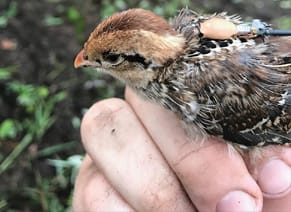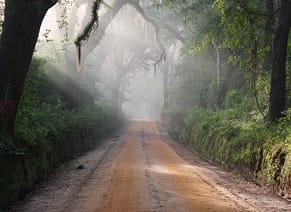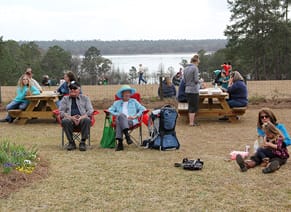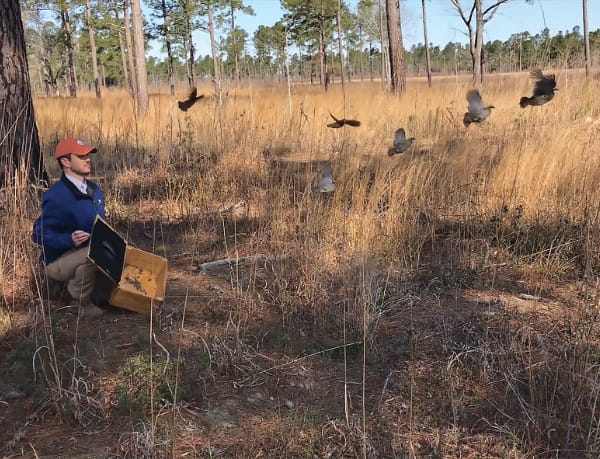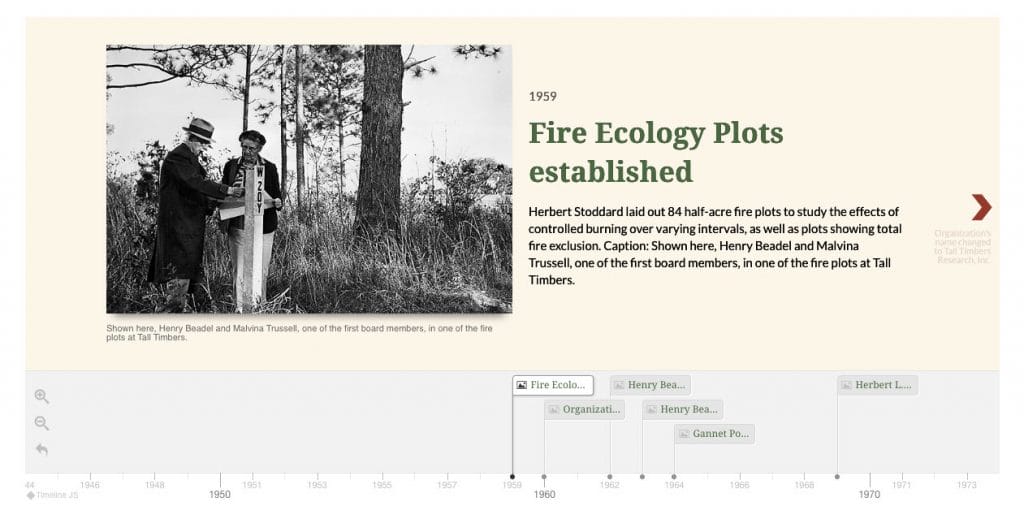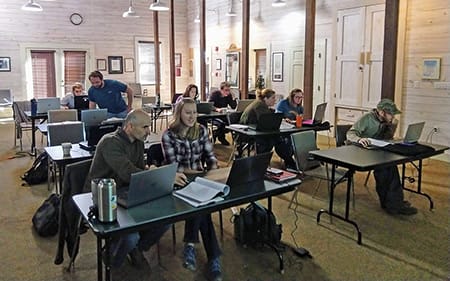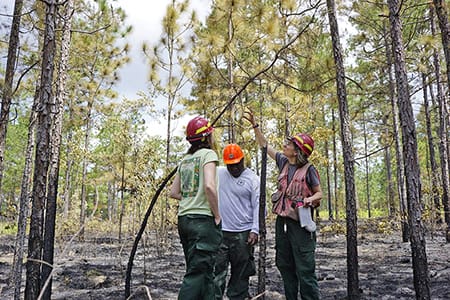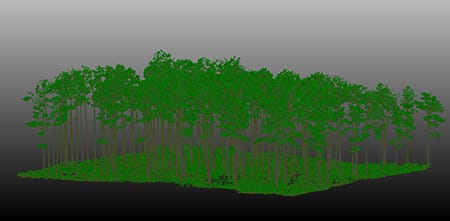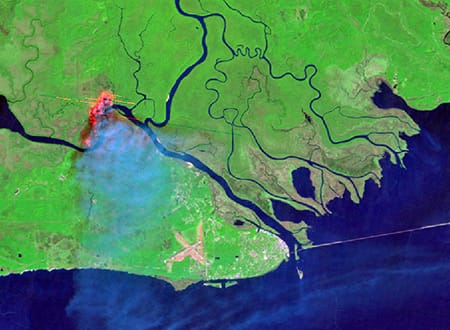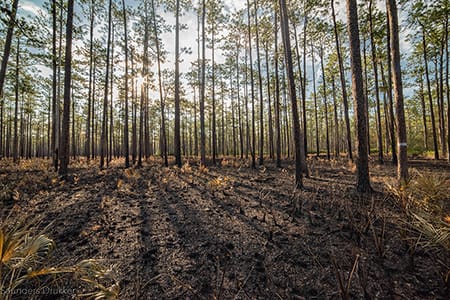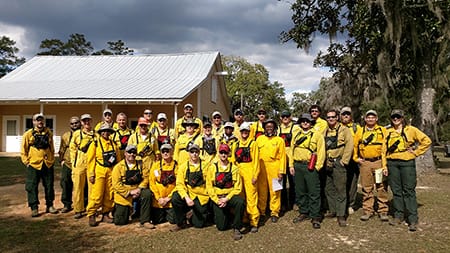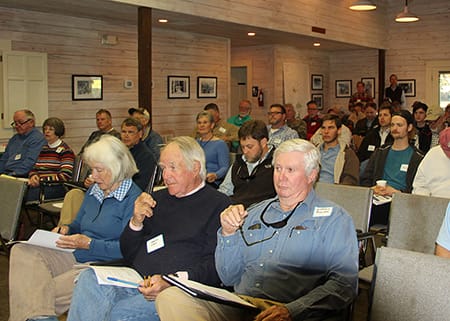Science together
with Land Stewardship
Engaging at the scale needed for change»
- As an internationally recognized research station with over 60 years of experience studying fire-adapted ecosystems and advocating for prescribed fire use.
- As a national hub for prescribed fire science, bringing fire managers and researchers together to identify and fill the gaps needed to increase the pace and scale of prescribed fire use.
- As a bobwhite quail research program working to recover this fire-adapted species throughout its range, by leveraging the land stewardship investment that comes with hunting opportunities.
- As regional experts on management for many of the rare species associated with the fire-dependent longleaf pine ecosystem.
- As one of the largest regional land trusts in the nation, permanently protecting over 145,000 acres of private land in the Red Hills and Albany regions.
- As a local landowner directly managing over 13,000 acres in North Florida on our Tall Timbers and Livingston Place properties.
Building on Fire History
Tall Timbers is widely considered to be the birthplace of prescribed fire science. Our founders, including Herbert Stoddard and the Komarek family, were among the first to apply empirical research techniques to better understand the role of fire in nature. They also launched a critical series of Fire Ecology Conferences in the 1960s that provided the setting needed to establish the field of prescribed fire science, during a time when fire suppression ideology ruled. These interactive timelines provide a look at the history of the land Tall Timbers is built on and the organization that was established in 1958.
Creating conservation corridors»
Tall Timbers is working with the Florida Wildlife Corridor Foundation across 2.815 million acres in 11 Big Bend counties to create micro-corridors to link working and wild lands of critical ecological value and prioritize conservation work. With a rich history of good land stewardship, sustainable forestry, prescribed fire and conservation practices, passionate landowners have a vested interest conserving the distinct natural and cultural resources and rural land use traditions.
By connecting with Tall Timbers, we can help you find opportunities to enhance your stewardship practices and with your help, we can conserve this unique region and keep North Florida looking like North Florida.
What’s New
Camden, South Carolina Reception & Auction
There is still time to buy tickets or sponsor the reception at Knights Hill in Camden, South Carolina, on Thursday, February 26, 2026.
The evening’s event will include cocktails, heavy hors d‘oeuvres and an auction— proceeds benefit the Tall Timbers Carolina Regional Quail Program. We’re excited to announce the guest speaker for this year’s Camden Reception and Auction will be David DiBenedetto, the editor in chief of Garden & Gun magazine. David is a nationally recognized outdoor writer, author and outdoorsman.
For additional information about or assistance with sponsorships, contact the Tall Timbers Development Office at (850) 866-2357.
19th Annual Georgia-Florida Turkey Invitational
Test your skills in the spring woods to see if you can outsmart the biggest longbeard in our adult or youth divisions.
Kick off supper is Thursday, April 2, 6:00PM at The Leigh Perkins Conservation Education Center at Tall Timbers with Special Guest Jeff Foxworthy.
Hunting starts Friday morning, April 3, with weigh-in and the awards luncheon at noon at The Leigh Perkins Conservation Education Center at Tall Timbers. Hunters are responsible for arranging hunting location.
For additional information about sponsorships, contact the Tall Timbers Development Office at (850) 866-2357.
Tall Timbers Spring Dinner
The Tall Timbers Spring Dinner started several years ago to honor new conservation easement properties and their owners who are dedicated to ensuring the perpetual protection of the Red Hills and beyond.
Our guest speaker this year is Mallory Dimmitt, CEO of the Florida Wildlife Corridor Foundation and former Vice President of Strategic Development for Lykes Bros. Inc., a fifth-generation family-owned agribusiness based in Florida.
For additional information about sponsorships and tickets, contact the Tall Timbers Development Office at (850) 866-2357.
The 2025 edition of Quail Call is out
Quail Call is Tall Timbers’ annual publication featuring the work of the Game Bird Program. It’s is your source for game bird research and management in the Southeast. In addition to updates on current research projects and initiatives, Quail Call features includes wild bobwhite quail hatch reports, feature stories from our biologists, updates on regional programs and research projects and more.
On the cover this year we have “Bob Calling” by Ron Thomson. We thank Ron for donating the use of this image for the striking cover of our 2025 Quail Call. Ron was born in Rota, Spain, and grew up in Florida. He earned his BFA with an emphasis in painting at Florida State University and has been a professional artist since 1993. Thomson is an expressive realist working in oils. His collectors often describe his work as “seemingly alive.”

Subscribe to our free bi-monthly email for land managers
A Land Manager’s Notebook continues to grow as a resource for anyone managing land for wildlife in the Southeast. We provide a mix of seasonal articles that draw from Tall Timbers’ research through the years, discuss current questions, and highlight the people out there practicing land stewardship.
Subscribe for free and start receiving A Land Manager’s Notebook.
Job Board for Quail Hunting Properties
Connecting job seekers with our private lands partners is the goal of our new Quail Hunting Properties Job Board. Visit the Job Board to see open positions or post a job. We hope that providing a dedicated location for these unique job openings, will help attract qualified candidates and further highlight the opportunities wild quail lands create. Our past economic studies show that quail lands generate nearly $340 million in economic impact across the Albany and Red Hills regions, including over 2,600 direct jobs. Technical colleges are helping to spread the word and are valuable partners as we all consider the training and workforce development needed to maintain world-class quail hunting properties.

